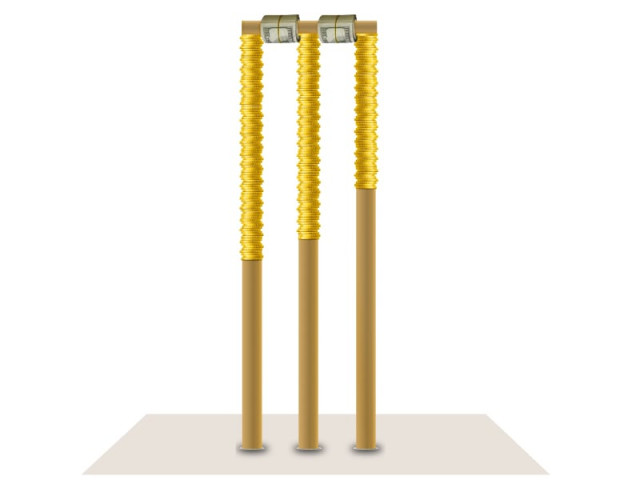A different ball game: Spillover economic benefits of the sport of cricket
Cricket has emerged as a huge economic force in the recent times.

Sports play an important role in economic activity in most of the developed nations of the world. While football remains the most popular sport on the planet, other sports – like tennis, golf, hockey, cycling and cricket – also enjoy a huge following in a number of countries around the globe.
While footballers dominate in terms of annual earnings, it is interesting to note that some top cricketers in the world feature prominently in the list of Forbes’ rich sportspersons for 2012. India’s Mahendra Singh Dhoni ranks 31st, with annual earnings of $26.5 million – ahead of the likes of footballer Wayne Rooney, who stands 37th with annual earnings of $24.3 million.
Admittedly, the earning gap between the top earning footballer (David Beckham, ranked number 8 in the Forbes’ rich sportspersons list, with annual earnings of $46 million) and Dhoni is still large and significant. Still, there is no denying the fact that cricket has emerged as a huge economic force in the recent past; especially in India, which has brought an unprecedented commercial dimension to the sport.
This has implications for a nation like Pakistan, which continues to produce some of the most talented cricketers in the world. While Pakistan has proven to be one of the most consistent performers in the T20 format of the game (winning the World Cup title in 2009, finalists in 2007, semi-finalist in 2010 and 2012), the cricket infrastructure in the country remains in a mess.
The Pakistan Cricket Board (PCB) – a government body under the Ministry of Culture, Sports and Tourism – has not only failed to promote the game in the country, but has also, in fact, been directly or indirectly responsible for wasting and killing cricketing talent. As a result, a number of some of the finest players have been relegated to premature oblivion. The likes of Saqlain Mushtaq, Muhammad Yousuf, Saeed Anwar and even Inzimam ul Haq could have played much more of the game than what they actually ended up playing. The recent loss of Muhammad Amir and Salman Butt is another example of how national talent goes down the drain in the absence of a comprehensive framework for identifying, nurturing, educating, retaining and promoting human resources in sports.
If the PCB continues to fail like this, the private sector must come up with a nation-wide parallel structure that organises cricket in the country. I propose that the corporate sector, and other emerging groups who would like to set up cricket clubs in the country, should set up a Pakistan Alternative Cricket Board (PACB). Given the success of the Indian Premier League (IPL), there is ample evidence that there are sufficient commercial incentives for organising cricket around a private sector enterprise.
In a country like Pakistan, where entertainment is almost non-existent apart from home television and manufacturing is declining and giving way to trading businesses, development of the sports industry can contribute significantly to the gross domestic product. Any private sector format built around cricket – which is a popular sport not only in Pakistan but in the region as well – must be a good business proposition in a country of nearly 200 million persons.
Cricket, developed as an entertainment industry, fits well in the conservative culture the country has developed over the last few decades. With the total demise of cinema, and music shifting away into India, it will be a pity if Pakistani cricketers, lured by economic incentives, also start shifting to India, Sri Lanka and even Bangladesh.
In the current circumstances, the private sector in Pakistan must show its social responsibility by breaking away from the state-run cricket infrastructure and helping develop a completely private business model to revive cricket in the country. By showing its commitment to social responsibility, the private sector will not lose commercially at all. The game of cricket is so powerful, and Pakistanis’ passion for it is so intense, that a huge market can be developed for it if the right business strategy is evolved.
The first step towards privatisation of cricket in Pakistan would be for existing teams and clubs to set up the proposed PACB and start tournaments like the IPL, supported by private sector businesses and individuals. Despite all the failings of the government, businesses of all types have survived and sustained themselves, and there is no reason that they may not do so in this case.
THE WRITER IS AN ECONOMIST AND A PHD FROM CAMBRIDGE UNIVERSITY
Published in The Express Tribune, October 8th, 2012.



















COMMENTS
Comments are moderated and generally will be posted if they are on-topic and not abusive.
For more information, please see our Comments FAQ